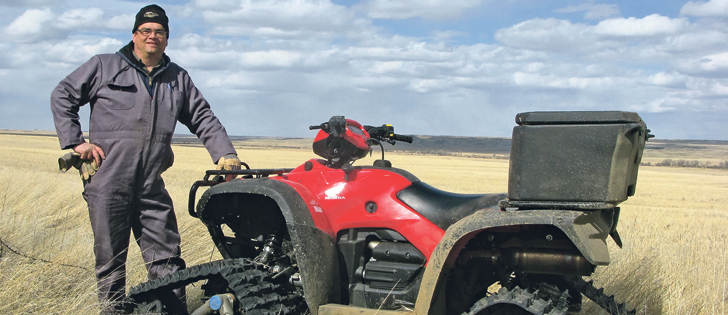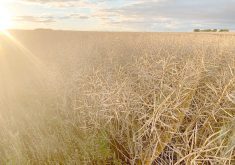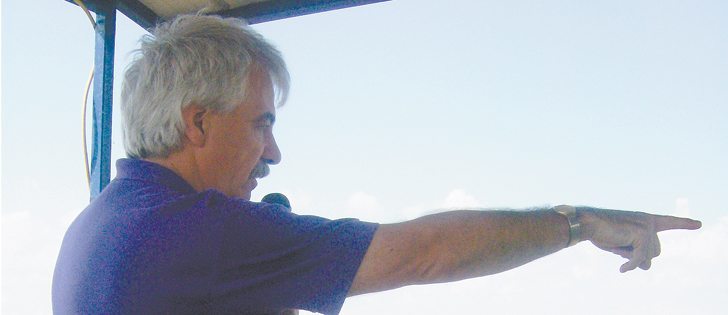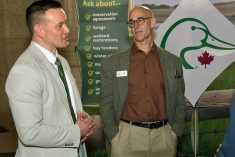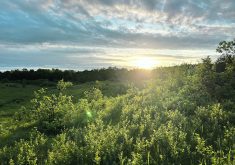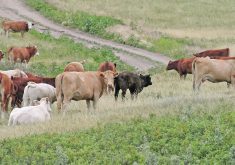BRANDON — When Manitoba farmer Scott Day presented his new business model for farmland ownership, farmers attending meetings earlier this year sat up and paid attention.
Day explained his role in a new farmland investment venture with a San Francisco based private equity firm called Fall Line Capital.
While dozens of American farmland investment groups are faltering and outright failing, Fall Line is expanding and attracting fresh sources of capital.
Many Manitoba producers know Day from his 24 years in research and extension agrology with Manitoba Agriculture. In 2012 he quit the government job to work for the new company.
Read Also
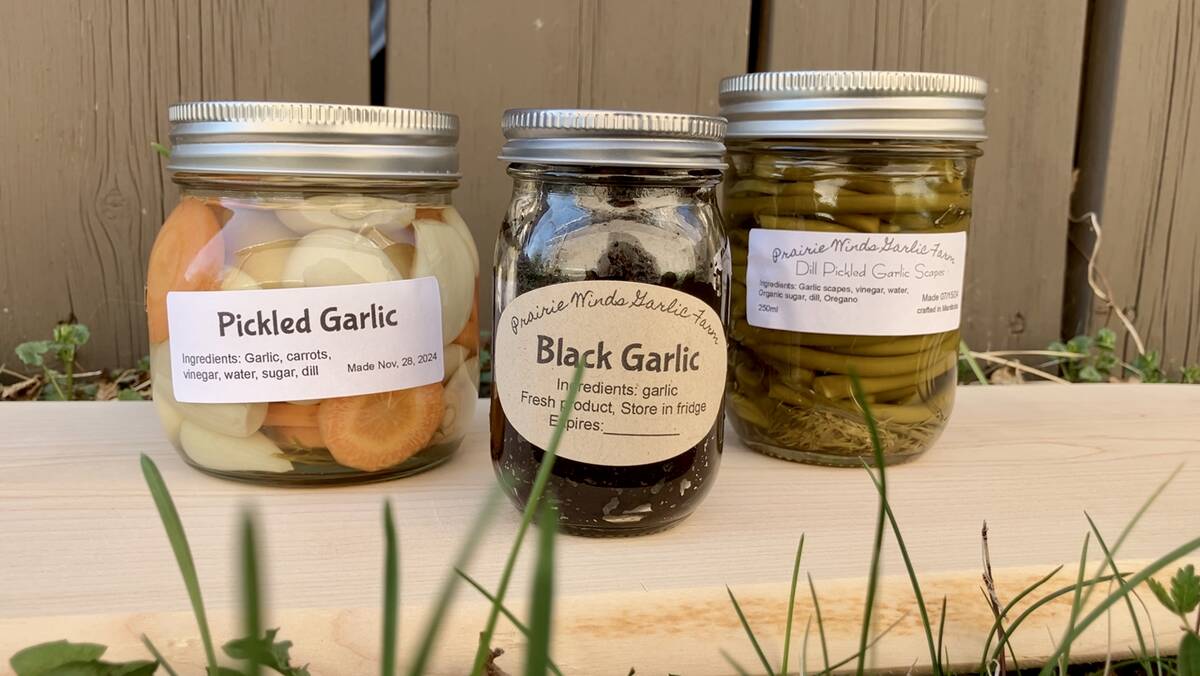
Growing garlic by the thousands in Manitoba
Grower holds a planting party day every fall as a crowd gathers to help put 28,000 plants, and sometimes more, into theground
Day still returns to Deloraine, Man., each spring, where he remains a full partner in Tree-lane Farms, which he runs with his parents.
After hearing about Fall Line and visiting the website, some people aren’t sure whether it’s some sort of altruistic conservation movement or a purely profit-oriented business enterprise.
Day says it’s some of both.
“Soil enhancement is major element in every farm plan we do. We only do what’s best for soil on each farm we buy,” he said.
“That’s why we don’t do cover crops everywhere because it isn’t always appropriate. Just like we don’t do zero till everywhere, because sometimes it just doesn’t belong. The long-term health of the soil is at the core of every decision we make, and it’s part of every agreement we write when leasing land to a farmer. The underlying condition is that the lessee is not allowed to abuse our land.”
Himself a veteran zero-till farmer, Day said he manages Fall Line land the same way he manages his own land.
He said he made the jump from local extension and research into the world of high finance because there was an opportunity to have a positive impact on large tracts of farmland. It was the next logical step in a career focused on soil stewardship.
“It started in 2010 when five of us from different backgrounds wanted to see if anyone out there was interested in taking our experience and knowledge and putting it to work for them. We provide the expertise, the outside investors provide the money,” he said.
“Investors have trusted us because they believe, like we believe, that protecting and improving the soil resource will always be key to a farm’s value appreciating. And because they have joined with us in a very long-term approach, we can make decisions carefully and deliberately with this in mind.
“If you start with good soil and water, then protect and enhance it, you should always have something more valuable compared to when you began.”
Day said Fall Line co-founders Eric O’Brien and Clay Mitchell had connections in the investment world who wanted to get their money out of projects that collapsed in 2008. They were looking for diversity and better long-term stability.
Food production was starting to gain more attention, so they examined that option. Their dilemma was whether to invest in food mega giants or closer to the farmgate on a smaller scale.
Day, who classifies himself as an employee of the company, said the co-founders decided in favour of farmland.
“ROI (return on investment) in farmland is like an eternity right now,” he said. “They wanted a physical investment, unlike so many previous investments that had looked great at first but then went down to zero. They weren’t even looking at short term 30 or 40 years like a farmer buying new land. They’re basically looking at an infinite time structure.”
Day said private equity firms often tell potential investors a big story, and major investors wanted to know that Fall Line Capital wasn’t just telling them one of those.
What they’re looking for is sincerity, he added.
Is the presenter serious about following through on his idea?
“We often heard the comment, ‘if we’re going to invest in agriculture, then we want to invest in organic production because we know that protects the environment.’
“It took some time to explain to them that organic farming will not improve a resource you intend to own for a long period of time. Things like soil conservation and proper nutrient replacement will ensure that the health and quality and productivity of the soil we plan to own together will be maintained, or better yet, improved over time.
“Part of our problem is that we waited too long to come up with this idea. Consequently, our investors also waited too long. We made our land investments from 2013-016. If we’d come up with this idea five or 10 years earlier, it would have been really great.”
Day said the Real Estate Investment Trust (REIT) law in the United States requires that money for farmland purchase come from U.S. sources, and these designated land purchase funds can be spent only in the U.S.
As a result, Fall Line cannot buy land in Canada.
However, REIT does allow Fall Line Capital to invest in companies dealing with innovative agricultural technology, and that money can be channelled into leading edge developments anywhere.
Fall Line now owns farmland in four U.S regions: Pacific Northwest, northern corn belt, Mississippi Delta and Montana. Its farms range in size from 100 acres up to thousands of acres.
REIT allows Fall Line to own and manage only land. It cannot own equipment or livestock. However, a loophole allows it to invest in a wide range of farmland improvements.
Within that context, Fall Line can invest in tile drainage, irrigation systems and even grain bins, grain cleaners and rock pickers if that’s required in the agronomic plan. However, tractors and combines aren’t allowed.
“REIT says we must work with the local farmer,” Day said.
“We don’t farm the land ourselves. The lessee is responsible for running the operation. Our lease stipulates certain things about soil management. It sets out what must be done and what cannot be done. We’re in contact with our tenants on a regular basis, whether we’re on a straight cash lease or a crop sharing agreement.
“For example, our Montana lessees have all kinds of wheat experience, but they’d never grown canola before last year. So I’m the person assigned to working with them on canola variety selection, what they need in terms of equipment, how to seed and harvest, weed and disease control, things like that.
“We have so many farms in the northern corn belt on a crop share basis that we hired a local agent who does everything for us. He manages the leases, crop inputs, seeding rates and helps them deal with problems.
In the Delta it’s a different scenario again. We have more farms there, so we have two people managing them and searching for new farms. Once a geographical area gets to a certain critical point, we hire a qualified person to keep on top of everything.”
Day said he’s not advocating this model as an answer for western Canadian farmers because the American farmland ownership scene is quite different from ours.
Institutional ownership of farmland comes with inherent risks, he added.
“Two of the institutional land owners in the States are run with public funds,” he said. “Their motivation is to spend money as fast as possible. It’s the same with money coming from Southeast Asia. I also see it in real estate here in San Francisco and out in Vancouver. They aren’t motivated by sound business logic or making good investments. Their motivation is to spend money and buy stuff.”
Day said Fall Line is not allowed to own farmland outside the U.S.
As well, there are Canadian restrictions on foreign ownership of farmland.
However, there is nothing to prevent Canadian entrepreneurs from setting up a similar type of investment business to serve Canadian farmers.




